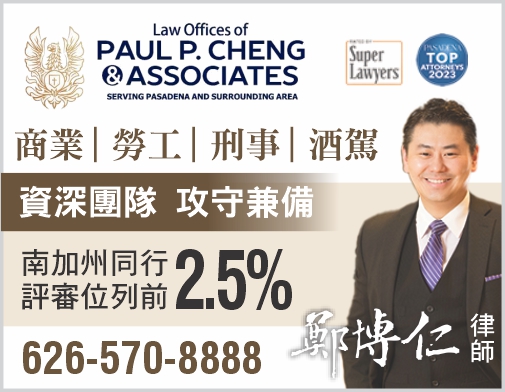WILL BUSINESS BANKRUPTCY AFFECT OWNERS OF THE BUSINESS?
時間:04/27/2018
瀏覽: 5783
WILL BUSINESS BANKRUPTCY AFFECT OWNERS OF THE BUSINESS?
Client and husband are the only stockholders of an S corporation that has been doing well for the last 15 years. In fact, it’s still doing well and had a great year last year. What is the difference between an S corporation and a C corporation? In an S corporation, the business income is declared in the 1040 of the owners, while the C Corporation files its own tax returns. But both corporations are legally separate entities from their owners. The corporation is a ‘person’ created by legal fiction. It can do whatever a real person does, legally. For instance, a corporation can buy and sell land, transact business in its own name, file a lawsuit and be sued in its own name, without affecting the owners of the corporation.
In client’s case, the problem is that husband is ill and can no longer run the business. So wife now will run the business. Her concern is that the corporation owes $1.5 M to banks and suppliers, and that she has equity in her residence of $1.0 M? So what is the connection between the two? Client is worried that if something happens to the business and it cannot pay the $1.5M, can the bank sue her and get her house?
Let’s analyze the problem. The first thing that has to be determined is whether or not husband, and/or client signed any personal guaranties that made them personally liable for the debts of the corporation. If neither one of them gave any written personal guaranty to any creditor for the debt of the business, then the answer is that the creditors of the business will not be able to get her house to satisfy the debts of the business. But certainly, creditors will attempt to penetrate the veil of corporate fiction to get to client’s house. Creditors will sue the corporation and client and allege that the corporate fiction should be invalidated or ‘pierced.’ Of course, creditors will attempt to do this, but can they be successful in proving the allegation, and end up with a court order setting aside the corporate that shields the personal assets of the owners of the corporation?
To pierce the corporate veil to get to the house of client, creditors will have to prove that the corporation was simply the ‘alter ego’ of the owners, that it was not operated by owners like a real corporation. The easiest way to prove the ‘alter ego’ attack on the corporation is proven by a preponderance of evidence that personal funds of the owners were being intermingled with the funds of the corporation. In other words, the owners were using the corporation as a ‘piggy bank.’ So, in client’s case, if there was no intermingling of personal and corporate funds, client’s house is secure because creditors will not be able to pierce the corporate veil to get her house to pay for the debts of the corporation. Salary payments to the owners; because they are officers of the corporation, is not intermingling of funds. Money lent by owners to the corporation is considered to be a debt owed by the corporation to the owner-lender, just like any other debt. This is not intermingling of funds.
However, if the owners use the corporate account to pay personal bills, this is intermingling of funds. Another reason to pierce the corporate veil is that corporate formalities were not followed such as recording board resolutions for decisions made by the company. Yet another reason is that the owners perpetrated a financial fraud on the creditors. What is financial fraud? If the owners acted recklessly in their business transactions resulting in major debt that they knew the business had no chance in paying back, this could be viewed as financial fraud and could be used to pierce the corporate veil. Let’s say owners borrowed $5.0 M from creditors based on projected sales of $50M per year but in reality sales came in at $1.0M a year, a case can be argued by creditors saying that owners were reckless in their decision to borrow $5.0M. But certainly, owners may still prevail in proving that they were justified in their $50M sales projections but something happened that was totally unexpected. It’s really a matter of proof at trial.
So what is the lesson here? If you own a business, do not ever personally guarantee the debts of the business. If the creditor requires your personal guaranty, go to another bank or supplier who will extend credit to your business without tying you in. If the business fails, at least you don’t lose any of your personal assets. You will still have a house to live in. There is no reason to ‘go for broke’ and put your family’s security at risk, is there? The other lesson is that do not intermingle personal funds with business funds, and make sure the corporation follows legal formalities and procedures. If you do this, then your corporation will do business by assuming its own debts and shield your personal assets from business debts.
Now if client wishes to not continue doing business, the S corporation itself can file a Chapter 7 bankruptcy to handle the $1.5 M of corporate debt. The corporate bankruptcy will not affect the personal assets of client because as I said earlier, a corporation is a separate “person” created by legal fiction; therefore, it can file for bankruptcy without affecting the personal assets of the owners of the corporation.
图片翻摄自网路,版权归原作者所有。如有侵权请联系我们,我们将及时处理。
 點評
點評 微信
微信 微博
微博








